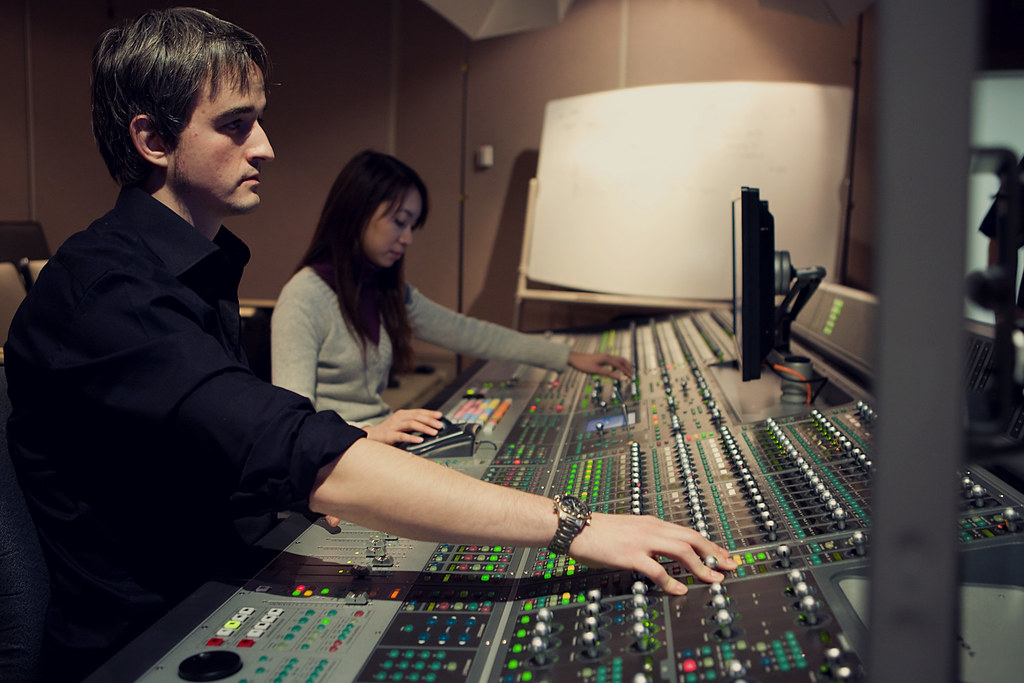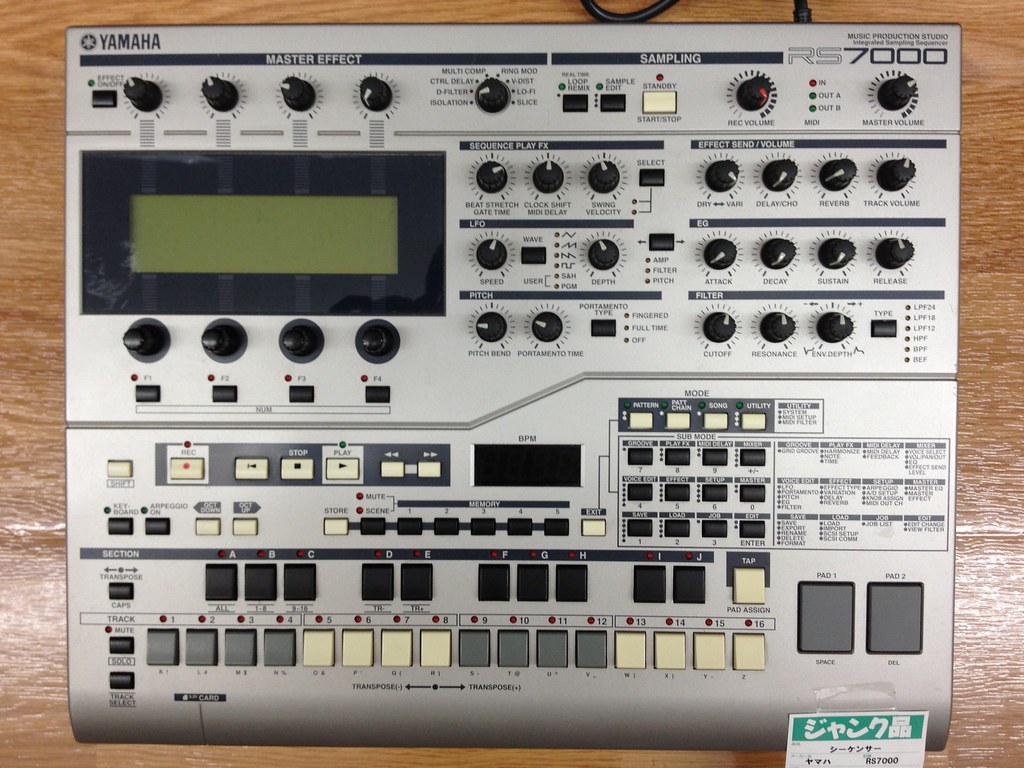Are you a music lover with a knack for technology? Do you dream of creating your own beats and melodies, and turning them into professional-quality tracks? If so, then you’re in for a treat! In this blog post, we’ll be diving into the world of music production courses offered by universities. Whether you’re a high school student considering your future career path or someone looking to enhance their skills, join us as we explore the harmony between education and hard drives. Get ready to discover which universities are paving the way for aspiring music producers, and uncover the secrets behind these dynamic programs. So grab your headphones, turn up the volume, and let’s embark on this musical journey together!
Table of Contents
The Rise of Music Production Courses in Universities
The world of music production has experienced a significant boom in recent years, leading to a rise in the number of universities offering music production courses. Music production has become a sought-after field, attracting students with a passion for both music and technology. These courses provide aspiring producers with the knowledge and skills needed to navigate the ever-evolving landscape of the music industry.
One important aspect of music production courses is their focus on hands-on learning. Students have the opportunity to work with state-of-the-art equipment and software, gaining practical experience in recording, mixing, and mastering. This practical approach allows students to develop their technical skills while also fostering their creativity.
Furthermore, universities offering music production programs often collaborate with industry professionals, providing students with valuable networking opportunities. These connections can open doors to internships, job placements, and mentorship programs that can greatly enhance a student’s career prospects.
As the demand for skilled music producers continues to grow, universities are recognizing the need to offer comprehensive programs that cover not only technical aspects but also business and entrepreneurship in the music industry. This holistic approach ensures that graduates are well-prepared for the challenges they may face in their careers.
In the following sections, we will explore some of the best universities for music production programs and delve deeper into how these courses are shaping the future of education in this exciting field.

Exploring the Best Universities for Music Production Programs
Are you looking to pursue a career in music production? Look no further than these top universities that offer exceptional music production programs. These institutions have recognized the increasing demand for skilled professionals in the music industry and have tailored their courses to provide students with a well-rounded education.
- *Berklee College of Music* – Known as a premier institution for contemporary music, Berklee offers an extensive range of programs including degrees in Music Production and Engineering.
- *Full Sail University* – Full Sail is renowned for its cutting-edge technology and hands-on approach to learning, offering degrees such as Recording Arts and Entertainment Business.
- New York University (NYU) – In the heart of the bustling music scene, NYU’s Clive Davis Institute of Recorded Music provides students with opportunities to learn from industry experts and gain real-world experience.
- *University of Southern California (USC)* – USC Thornton School of Music boasts world-class facilities where students can hone their skills in state-of-the-art recording studios.
- *Middle Tennessee State University (MTSU)* – MTSU’s Department of Recording Industry offers hands-on training through its Grammy-winning program, allowing students to collaborate with talented artists.
These universities are just a few examples of institutions that prioritize excellence in music production education by combining theoretical knowledge with practical application. With dedicated faculty, access to professional equipment, and networking opportunities within the industry, graduates from these programs emerge prepared for successful careers in this competitive field. Whether you’re passionate about producing hit records or working behind the scenes on sound design for films, there’s a university out there ready to help you achieve your musical dreams

How Music Production Courses are Shaping the Future of Education
Section 3: How Music Production Courses are Shaping the Future of Education
As technology continues to revolutionize the music industry, music production courses have emerged as a vital component of higher education. These courses not only equip students with technical skills but also foster creativity and innovation.
One key aspect of music production courses is their ability to adapt to the changing landscape of the industry. With advancements in software and hardware, students are exposed to the latest tools and techniques used in professional studios. This ensures that graduates are well-prepared for the demands of the industry upon graduation.
Moreover, music production courses go beyond technical training by emphasizing critical thinking and problem-solving skills. Students learn how to analyze and deconstruct music, allowing them to create unique sounds and compositions. This multidisciplinary approach prepares students for a variety of careers in music production, including sound engineering, music composition, and audio post-production.
By offering comprehensive programs that combine theory and practice, universities are playing a crucial role in shaping the future of music education. These programs not only provide students with a solid foundation but also encourage them to push boundaries and explore new possibilities in music production. As technology continues to evolve, universities with music production courses will remain at the forefront of innovation in education.
A Closer Look at Universities Offering Music Production Degrees
Top Universities for Music Production Degrees: A Comprehensive Overview
When it comes to pursuing a degree in music production, there are several top-tier universities that offer comprehensive programs designed to equip students with the skills they need to thrive in the industry. These institutions not only provide a strong foundation in music theory and technical skills but also emphasize hands-on learning and real-world experience. Some of the key universities renowned for their music production degrees include Berklee College of Music and its state-of-the-art facilities, Full Sail University known for its immersive curriculum, and University of Southern California (USC) which boasts an impressive network of industry connections. These universities stand out as leaders in shaping future professionals in the field of music production.
The Curriculum: What to Expect from Music Production Courses at Universities
Music production courses offered by universities typically provide a well-rounded education that covers both theoretical and practical aspects of the field. From audio engineering techniques to music theory, students can expect to gain a comprehensive understanding of the art and technicalities involved in producing music.
In these courses, students will learn how to use industry-standard software and hardware, such as digital audio workstations (DAWs) and mixing consoles. They will also have opportunities to experiment with different genres, collaborate with fellow musicians, and develop their own unique sound.
Moreover, many universities offer specialized modules that focus on specific areas within music production, such as sound design or electronic music. These programs aim to equip students with the necessary skills for success in today’s ever-evolving music industry.
State-of-the-Art Facilities: Exploring the Technology and Equipment at Music Production Programs
When it comes to music production, having access to cutting-edge technology and equipment is crucial. Universities offering music production degrees understand this and strive to provide students with state-of-the-art facilities that replicate real-world recording studios. These facilities are equipped with industry-standard software, hardware, and instruments, allowing students to gain hands-on experience with the tools used by professionals in the field. From high-quality microphones and mixing consoles to advanced digital audio workstations, these universities ensure that students have everything they need to bring their musical visions to life. By immersing themselves in these top-notch facilities, aspiring music producers can develop their skills and prepare for a successful career in the industry.
Alumni Success Stories: How Universities with Music Production Courses Prepare Students for the Industry
Universities offering music production degrees provide students with the necessary skills and knowledge to excel in the industry. Through hands-on training, industry partnerships, and mentorship programs, these universities equip students with a solid foundation in music production. Graduates from these programs have gone on to achieve remarkable success in the field, showcasing their talent and expertise. With access to state-of-the-art facilities and experienced faculty, students are able to refine their technical skills and develop their unique artistic vision. These universities foster a supportive environment that encourages creativity and collaboration, preparing students for the competitive world of music production.
Choosing the Right University for Your Music Production Journey
Accreditation and Reputation: Evaluating the Quality of Music Production Programs
When it comes to choosing the right university for your music production journey, one crucial factor to consider is accreditation and reputation. Accreditation ensures that a program meets certain quality standards and has undergone rigorous evaluation by an accrediting body. Look for universities with music production programs that are accredited by reputable organizations in the field.
Reputation also plays a significant role as it reflects how well-regarded the program is within the industry. Research universities known for their strong connections with professionals and successful alumni in the music production field. This association can provide valuable networking opportunities and open doors for internships or future employment.
By prioritizing accreditation and reputation, you can ensure that you’re investing your time, effort, and resources into a high-quality music production program at a reputable university.
Faculty and Industry Connections: Learning from the Best in the Music Production Field
When choosing a university for your music production journey, faculty expertise and industry connections are crucial factors to consider. Look for professors who have extensive experience in the music industry, as they can provide valuable insights and guidance. It’s beneficial to learn from instructors who have worked with renowned artists or produced hit songs.
Additionally, universities that have strong ties to the music production industry offer excellent networking opportunities. These connections can lead to internships or job placements after graduation. By learning from professionals currently working in the field, you gain real-world knowledge and stay updated on current trends and technologies within music production. So don’t underestimate the power of faculty expertise and industry connections when selecting a university for your music production studies.

The Benefits of Pursuing a Music Production Degree in Higher Education
A music production degree in higher education can provide numerous benefits as you embark on your journey to become a professional in the field. Choosing the right university is crucial, as it sets the foundation for your future career. Look for universities that offer comprehensive programs with a focus on both theoretical knowledge and practical skills.
One key benefit of pursuing a music production degree at a university is gaining in-depth industry knowledge. Professors who have experience working in the music industry can share valuable insights and guide you through various aspects of music production, including recording techniques, sound design, mixing, and mastering.
Additionally, universities often provide access to state-of-the-art equipment and cutting-edge technology. This means you’ll have hands-on experience with professional-grade tools used by industry experts. Moreover, collaborating with fellow students who share your passion for music can foster growth and creativity.
Furthermore, pursuing a degree in music production allows you to build a strong network with professionals already established in the industry. Many universities organize events where students can connect with industry professionals such as producers or studio engineers. These connections may open doors for internships or job opportunities after graduation.
In conclusion, enrolling in a university program focused on music production offers invaluable advantages like acquiring specialized knowledge from experienced professors, learning hands-on using advanced equipment and facilities, networking opportunities, which are essential for launching successful careers within the dynamic landscape of the music industry.

Unleashing Your Creativity: Universities with Cutting-Edge Music Production Facilities
When it comes to music production, having access to top-notch facilities can make all the difference. That’s why many aspiring producers are turning to universities that offer cutting-edge music production facilities. These state-of-the-art studios and equipment provide students with an immersive experience that mirrors real-world professional settings.
One key phrase that stands out in this context is “cutting-edge music production facilities.” Students enrolled at these universities get hands-on training using industry-standard software, hardware, and recording equipment. Whether it’s mixing tracks on high-end consoles or experimenting with advanced synths and plugins, these resources allow students to explore their creative potential in a supportive environment.
Another crucial term is “universities with,” which suggests that not all institutions have such impressive facilities for music production. Aspiring producers should research and consider universities offering specialized programs equipped with up-to-date gear and dedicated spaces like recording studios, soundproof rooms, teaching labs, and collaboration areas.
By choosing a university renowned for its cutting-edge music production facilities, students position themselves for success in an industry where technical skills matter just as much as talent. With ample opportunities to experiment creatively while learning from experienced faculty members, these institutions pave the way for future successes in the world of music production.

From Classroom to Studio: Hands-On Learning in Music Production Programs
Hands-On Learning in Music Production Programs
When it comes to music production, theory can only take you so far. That’s why many universities offering music production programs place a strong emphasis on hands-on learning. Students have the opportunity to immerse themselves in state-of-the-art recording studios, where they can experiment with different equipment, software, and techniques.
In these hands-on environments, students learn how to operate industry-standard hardware and software tools used in music production. They work on real-world projects and gain practical experience that prepares them for careers in the field.
Whether they are mixing tracks or producing their own compositions, students get valuable feedback from experienced instructors who have worked in the industry. This direct mentorship allows them to refine their skills and develop their unique artistic style.
By providing access to professional-grade equipment and fostering an environment of creativity and experimentation, universities empower aspiring producers to confidently step into the world of music production upon graduation. The combination of theoretical knowledge with practical application ensures that graduates not only understand the technical aspects but also possess the creative instincts necessary for success in this competitive field.

Networking Opportunities: Connecting with Industry Professionals at Music Production Universities
One of the key advantages of pursuing a music production degree at a university is the abundant networking opportunities it provides. These universities often have strong connections with industry professionals, allowing students to interact and network with experts in the field. This exposure can be invaluable for aspiring music producers looking to make connections and gain real-world insights.
Through guest lectures, workshops, and seminars, students get a chance to learn from experienced professionals who have worked on major projects or collaborated with renowned artists. These interactions enable students to expand their professional network and build relationships that could potentially open doors for future collaborations or job opportunities.
Furthermore, some universities even organize internship programs where students can gain hands-on experience by working alongside established industry figures. These internships not only provide practical skills but also give students an opportunity to showcase their talent directly to influential individuals in the music industry.
By connecting with industry professionals during their time at a music production university, students can develop valuable contacts within the field while simultaneously honing their technical skills and knowledge. This combination of theoretical education and practical networking creates a unique advantage for graduates as they enter the competitive world of music production.
In conclusion, exploring universities with music production courses opens up a world of opportunities for aspiring music producers. From learning the technical aspects of recording and mixing to honing their creative skills, these programs provide students with a comprehensive education in the art and science of music production.
By attending one of these universities, students not only gain access to cutting-edge facilities and hands-on learning experiences but also have the chance to network with industry professionals and learn from successful alumni. This combination of theoretical knowledge and practical experience equips graduates with the skills they need to pursue a rewarding career in the music industry.
If you found this article informative and engaging, be sure to check out our other content on [your website name]. We cover a wide range of topics related to music production, including equipment reviews, industry trends, and artist interviews. Whether you’re an experienced producer or just starting your musical journey, we’ve got something for everyone.
Start unlocking your full potential as a music producer by exploring universities with outstanding music production programs.
Questions
Question: Who offers music production programs at universities?
Answer: Many universities offer music production programs, including renowned institutions like Berklee College of Music and Full Sail University.
Question: What can I expect to learn in a music production program?
Answer: In a music production program, you will learn the technical skills required for recording, mixing, and producing music. You will also gain knowledge in music theory, sound design, and industry practices.
Question: How long does it typically take to complete a music production program?
Answer: The duration of a music production program varies depending on the university and the level of the program. Generally, it can take anywhere from one to four years to complete a music production degree.
Question: Who can benefit from a music production program?
Answer: A music production program is beneficial for individuals who have a passion for music and aspire to work in the music industry. It is suitable for aspiring music producers, audio engineers, and artists who want to have a deeper understanding of the production process.
Question: What are the career opportunities after completing a music production program?
Answer: Graduates of music production programs can pursue various career paths, including music producer, sound engineer, recording studio technician, live sound technician, and audio post-production specialist.


